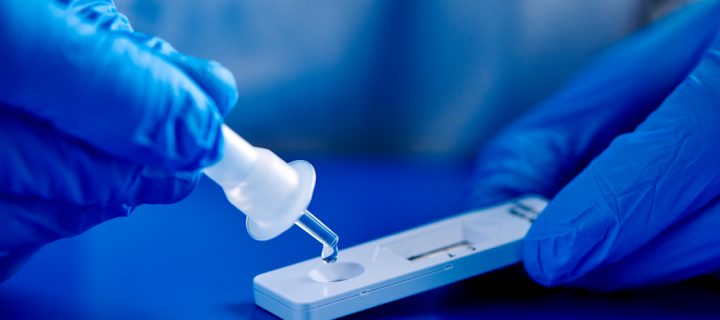Experts say they are in most cases.
There’s no question that the virus causing COVID-19 has changed during its short lifespan on our planet inhabiting humans. What used to be identified via a dry cough, a fever, and trouble breathing now causes plain common cold symptoms in some people, vomiting and diarrhea in others, irritated eyes, and sometimes no symptoms at all.
People are still dying from COVID-19 around the globe but the use of vaccines and the changing nature of the virus, as well as infection rates has lowered death rates in many places compared with mid-pandemic peaks. In Canada and the US, we aren’t at all-time coronavirus death rate lows, however. Testing to see if you have the virus is still an important and considerate thing to do if you should fall sick with COVID-19. This is in order to provide an alert that you should avoid infecting others and also perhaps seek emergency care, yourself.
But do rapid tests still work? Here’s what the experts say.
Studies show, so far, so good, for the most part
As the virus mutates, many people are leery that a negative test result may no longer be accurate. You might still have COVID-19. According to the World Economic Forum’s senior science communicator, Carol Clark, however, you can rest easy. New research shows that COVID-19 tests are still pretty accurate, overall. In order to obtain a false result, mutations on the nucleocapsid N protein would need to be present that allow your COVID-19 sample to avoid being detected by a diagnostic test.
Related: How to protect your child from RSV
At the time of her article, none of the major COVID-19 variations circulating the globe as variants of concern were evading testing. This being said, experts have admitted that a small portion of sequences could hide from COVID-19 rapid tests and may currently be doing so.
Wait a few days for a positive test to appear
Many people who have caught COVID-19 in recent months haven’t tested positive until several days have passed. If you fall sick with pronounced coronavirus symptoms, the best advice is to stay home until you get better so that you don’t spread your sickness to others. Keep testing yourself for days following the onset of your symptoms in order to be sure you don’t have the virus. Rapid tests still identify new variants but experts agree they can have a difficult time doing so at the onset of your sickness.
For the most accurate results, swab both your throat and your nose when testing. And remember, you may test negative but still be infected yet not contagious enough to spread the virus around. Different variations of COVID-19 produce different viral loads, some heavier than others.
If you’ve fallen sick with the symptoms of COVID-19 and are concerned about your health but you haven’t tested positive for the virus, it’s still wise to call your doctor. Protect yourself and get help when you need it.
For more on variants of concern, click here.
Photo credits: nito/Shutterstock.com












